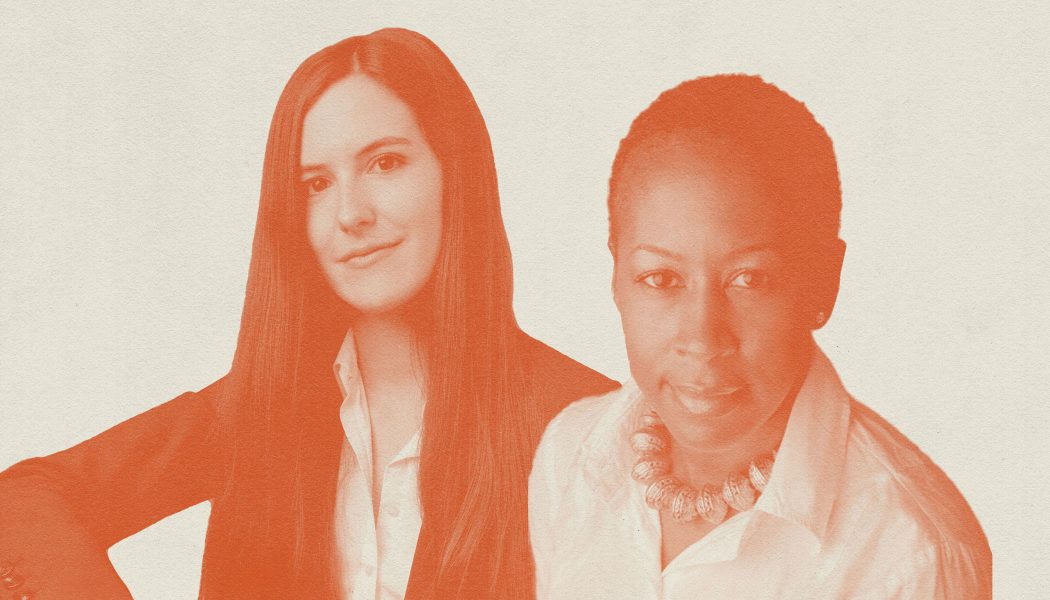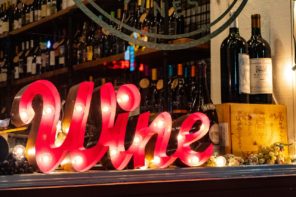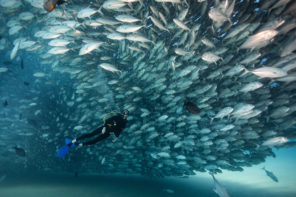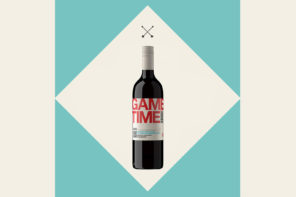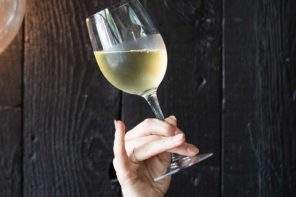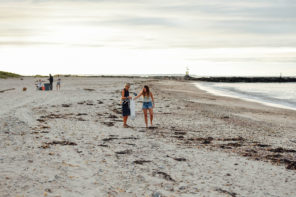Sommelier and author Victoria James talks with wine journalist and speaker Julia Coney
@victoria___james x @juliaconey
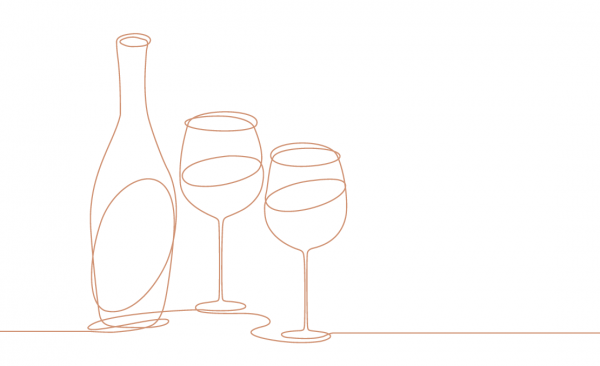
When Victoria James became, at 21, the country’s youngest sommelier, she may have known more than most of her peers about oenology, but she also quickly learned more about the darker side of the wine world. She chronicled the abuse, misogyny and attitudes of intolerance she found in the Court of Master Sommeliers, the dominant certifying body for professional somms, in her memoir Wine Girl. Her talking about these issues emboldened others to also tell their stories and contributed to the process of the tumbling down of the gilded walls of the Court. She has also founded Wine Empowered with Cynthia Cheng and Amy Zhou to support bringing more diversity to positions of power. Julia Coney is also a leading voice in calling for more diversity in the wine world, consistently calling out and confronting racism and inequality, writing influential treatises on the topic and this year founding Black Wine Professionals, an organization to help raise up more people.
Her talking about these issues emboldened others to also tell their stories and contributed to the process of the tumbling down of the gilded walls of the Court.
Victoria James: You worked as a legal assistant and in the world of beauty before getting into beverages, but what drew you into wine?
Julia Coney: It was in the late ’90s. I was a legal assistant. The attorney I worked with had just come back from Napa, and all his wine was getting delivered to the office. He just had them put it in front of my desk one day, and I was like, “I can’t get to my desk. I can’t do my work because you got all this wine crap.” He was like, “I thought you studied abroad in France.” I was like, “Yeah. What does have to do with anything?” He said, “Well, didn’t you drink wine?” I’m like, “Yeah, it was cheaper than soda.” I remember because when I studied abroad, it was on the franc. You could get an omelet, a half carafe of wine with a salad for $6, and the bread and the butter, of course. I was just like, “It was cheap.” He had a barbecue at his house, and he opened Clos du Bois and Caymus, and he paired it with brisket and ribs and sausage. He made me really taste food and wine together. My family doesn’t drink, so I didn’t understand the concept until he actually just had this barbecue.
Victoria: Is this how you got into wine writing?
Julia: I started traveling to wine regions just for pure enjoyment, as a very young person. I just wanted to explore Bordeaux wines. He helped me plan my trip there. Eventually, I moved to D.C., still as a legal assistant. D.C. has a different wine scene than Texas. It was really a lot of East Coast wines that I wasn’t used to getting in Texas, so that was a different exploration.
I knew about this wine culture, but I’d never thought about writing about it. It wasn’t until I decided I didn’t want to be a beauty writer anymore, and I debated about food and wine because I was like, “I have a talent for writing.” But I didn’t know if it was food or wine until I realized I didn’t want to write about food. I’m like, “I love food, but I can’t paint a story of food like I can with wine.” That’s how I ended up writing about wine.
I met a winemaker, and I walked in. He said, “I didn’t expect you to be Black.” And I said, “well, I didn’t expect you to be an asshole, but here we are.”
Victoria: You’re such a prolific writer. I love that you stand up for yourself and others. In 2018, you wrote an open letter to the wine industry, titled, “Your Wine Glass Ceiling is My Wine Glass Box,” pointing to a lack of inclusion in the wine world. Food & Wine magazine called this letter the straw that broke the camel’s back. How do you feel about that?
Julia: When I look back on that story that I wrote, I did it as a blog post, and it was all about… Everything was women breaking glass ceilings. I was like, “Well, if everything appears to be places for white women, then how is that a glass ceiling for me?” A lot of racist things had been said to me up until I wrote that piece. I wanted people to understand these are the things being said and that’s a problem. Someone told me I looked like the help at a masterclass because I had on a black jacket. He said “Well, you look like the help.” He’s a somm in D.C. He’s never apologized.
I met a winemaker, and I walked in. He said, “I didn’t expect you to be black.” And I said, “Well, I didn’t expect you to be an asshole, but here we are.”
I wanted the wine industry to know they thought they were very inclusive, and they really weren’t. I was just like, “Fuck it. I’m going to say something. I have nothing to lose.”
Victoria: It’s interesting though. You did have a lot to lose. You weren’t as you are now, Wine Enthusiast Wine Star of the Year Award winner. You had written a ton, but you just were really kind of starting. That’s very brave.
Julia: It just happened to be at that time social media was taking off at the same time, so it was picked up by the industry. It was more like people were like, “Who is this girl we’ve never heard of?” I will say that, yes, it was the straw that broke the camel’s back because no one had been talking about racism in wine. They talked about elitism, which wine is a part of, but it wasn’t racism.
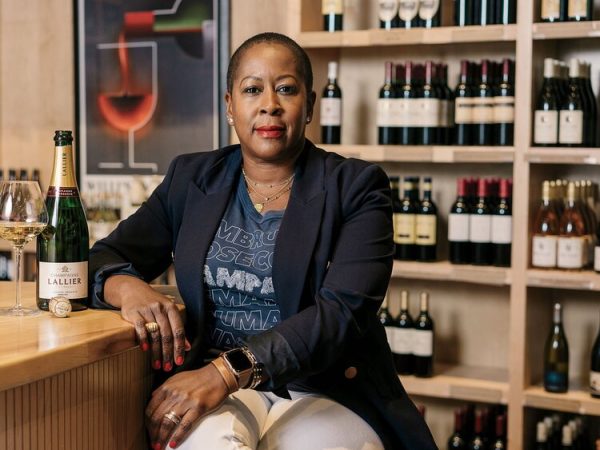
Victoria: You started Black Wine Professionals this year, which is an incredible database, as a response to a lot of industry gatekeepers, saying they didn’t know how to contact black wine professionals. It’s been a few months now since this launched. What has the response been?
Julia: The response has been literally overwhelming. What really got me to thinking was last year, I was on an industry trip that I personally paid for. I watched all these importers and distributors bring all these white dudes to Champagne, and I’m going, “Where are the women?” Then I thought like, “So you came from New York, but you couldn’t find one person of color to put on this media trip?” Then when I had a trip in February to Italy, the lady who put it together, she said, “I don’t know that many black wine professionals.”
Victoria: I think it’s so incredible that especially during these times, during a pandemic, you’re providing so much opportunity. It’s unheard of. 2020 has been such a challenge for the wine and hospitality industry in general. I know that you in particular have been on the front lines as an essential worker, in addition to doing Black Wine Professionals and a million other things. Much like myself, we’ve been slinging wine to the general public from morning until night while others have stayed at home in quarantine. We’ve put on masks and served our community.
I think during the pandemic, a lot of people squirreled away. That’s great. I think a lot of people needed to do that, but it’s just incredible seeing that you’ve actually done 10 times more than you were doing before.
Julia: I always have to remember that someone had to die for me to start this company. When I think about it—the way George Floyd died, it haunts me. Because I was so busy, I would not have had the ability to do this. I always think in his honor and Breonna Taylor’s.
Victoria: It’s tragic yet powerful. Your organization is maybe one of the silver linings.
Julia: You know how when you want to help people so much, you ask, “Am I doing enough?” I believe that this has made so many changes. I see it happening. Think about before with the magazines and people getting recognition. It was always this select few. People had never heard these names. I’m so proud of that. People are getting opportunities. I don’t want to be the only one. Like you said in your article for Wine Enthusiast, you always want to be able to pull somebody else with you.
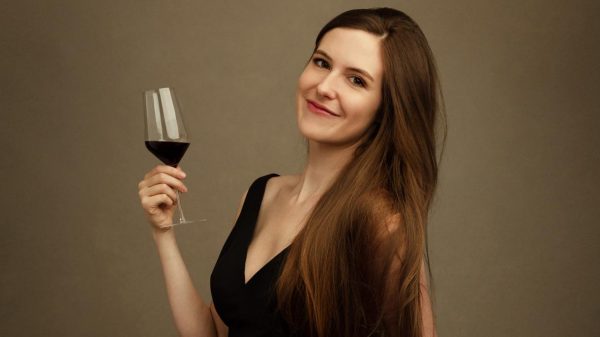
Victoria: During these times, there are certain earthquakes that are happening in our industry. One of the big ones right now is the dismantling of The Court of Master Sommeliers, this organization that has certified sommeliers and is now facing backlash from years of sexual harassment, racism, abuse. What are your thoughts on how aspiring wine professionals should pursue education and training?
Julia: My background is different. Mine was WSET [Wine and Spirit Education Trust]. The CMS was something I never thought I would ever look at because, to me, that was restaurant-focused. That was a different way of hospitality. Once it’s dismantled, it’s going to blow up and get put back together. That’s what’s going to happen, but it’s going to be, in my opinion, put back better.
When restaurants do open, we do need those professionals. I want to see a beautiful bottle opened elegantly at my table. Do you need to have people help you learn how to serve, which way to hold a bottle? But if you’re serving in restaurants, most customers don’t want to know about the river that ran down the valley. They just don’t. The way it’s going to be presented to consumers is going to be different.
I do believe in theory. I do believe in the factual education of wine that we all need to know. There’s the Mistral. There’s a diurnal shift. Yes. We need to be tested on those, but the way those need to be tested, in my opinion, is everybody goes in, everybody gets a number, no one really sees your name, there’s a different body. Eventually, the Court may move to be more like WSET, not fully, but focus really on being hospitable, because that’s what hospitality is supposed to be and also understand, “Yes, you can change. You can do this.”
It can be transparent and be open and honest so you have more people becoming Master Somms, because we all know those certifications do help people get more money. That’s a fact. Nothing’s wrong with it. I’m not against getting a pin to get more money. I’m against the process that you force people to lower themselves or you treat them like crap to do it. That is going to change. Once it blows up, and you put the pieces back together, it’s going to come back better for someone coming after all of us.

